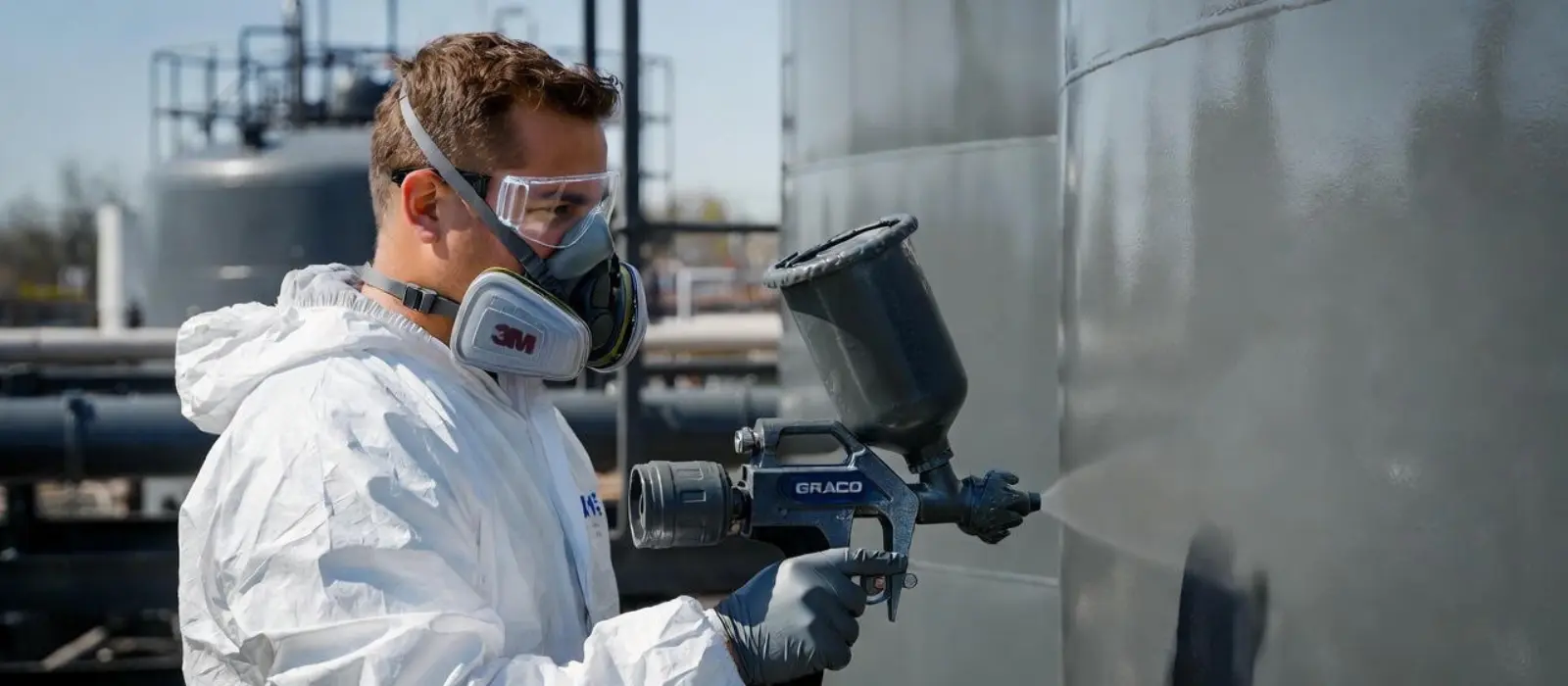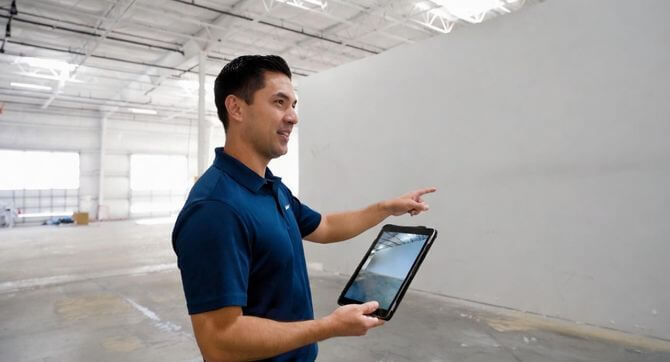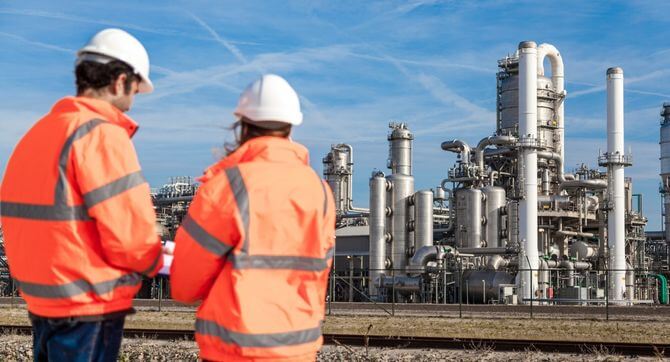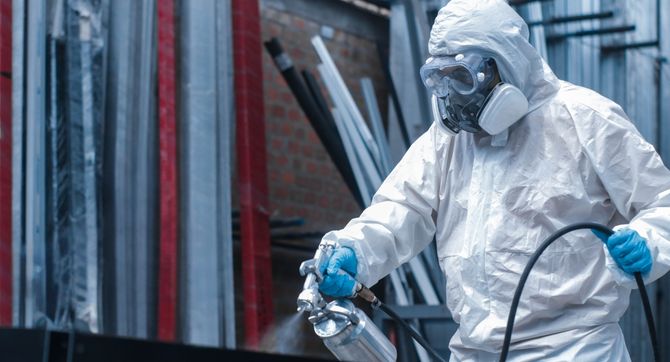Industrial Painting & Protective Coatings That Outlast & Outperform
High-Performance Coatings Built to Last

⭑⭑⭑⭑⭑
7K+ industrial projects | 20M+ sq ft coated | 40+ yrs in Central Ohio
Why Columbus Industries Choose Us
Heavy-duty industrial painting & coatings in Columbus for warehouses, manufacturing plants, tanks, silos, and machinery — corrosion-proof, OSHA-compliant, and zero production downtime. After-hours, shutdown, or phased crews.
Premium Industrial Coatings
Sherwin-Williams, PPG, Carboline, and International systems engineered for rust, chemicals, and abrasion.
One Project Manager
Single point of contact who knows your specs, safety plan, and timeline inside-out.
80% of Our Work is Referrals
Plants and warehouses keep calling us back — and telling their neighbors.
Zero Production Downtime
We workaround your business schedule — your lines never stop running.
Upfront, Fixed Pricing
Detailed proposals with every cost listed — materials, blasting, containment, labor, cleanup. You approve before we start.
Third-Generation Crews
OSHA 30-Hour foremen, confined-space certified, background-checked — same high standards since 1985.
Our Industrial Painting Process
From quote to final walkthrough, we make the process predictable and painless.
1.
Free On-Site or Photo Quote
Send photos and specs or schedule a visit. We’ll recommend the best options for your budget.

2.
We Work With Your Schedule
Shutdown windows, nights, or phased — we work with your schedule to keep your facility running.

3.
Professional Prep & Application
Containment, dustless blasting, multi-coat systems, adhesion testing, daily reports.

4.
Final Inspection & Hand-Off
We walk the job with you when everything is dry. You point, we fix, until you’re 100% satisfied.

Quick Question?
Drop your info in the form and we’ll call or text back asap.
Other Industrial Services We Specialize In

Commercial Power Washing
Storefronts, sidewalks, parking garages — oil, gum, and grime gone in one visit.
Warehouse & Facility Painting
High-build epoxies, safety line striping, rust-proofing for Grove City and Rickenbacker warehouses.
Tank & Silo Coatings
Interior/exterior linings — chemical-resistant, FDA-compliant, or potable-water certified.
Structural Steel & Pipe Painting
Zinc-rich primers and polyurethanes for bridges, cranes, and plant frameworks.
Sandblasting & Abrasive Blasting
Dustless, contained blasting to SSPC-SP 10 standards — perfect prep for long-lasting coatings. Learn more about our dustless blasting services.→
Industrial Floor Coatings
Forklift-safe, chemical-resistant epoxy and polyurethane floors with 24-hour cure options. Learn more about our epoxy flooring services.→
What Columbus Industries Are Saying

“Passed our surprise FDA audit with flying colors.”
They coated our entire interior with epoxy while we kept production running. Zero odors, zero contamination issues, and the finish is bright white and wash down ready. Already booked them for the freezer expansion.
— Chris D. | Plant Manager, Food-Processing Facility, Lockbourne
“Held up perfectly through last winter’s salt and ice.”
Full exterior repaint plus intumescent fireproofing on all structural steel. They blasted everything to white metal, applied the correct Sherwin-Williams system, and the building looks better than the day it was built. Highly recommend.
— Mark S. | Maintenance Supervisor, Steel Fabrication Plant, West Jefferson
Everything You Need to Know
No fluff, no sales pitch — just the real answers Columbus industrial property managers ask us.
What areas do you serve?
We cover all of Central Ohio, including Downtown Columbus, Short North, Dublin, Hilliard, Grove City, Easton Town Center, Polaris, Westerville, Newark, and surrounding zip codes (43215–43240).
How much does industrial painting cost in Columbus?
Although every job is different, industrial painting typically costs $3–$7 per sq ft for basic warehouse recoats, $5–$12 for tanks or silos with specialized linings, and $4–$8 for machinery (includes prep like blasting). Factors like surface type, square footage, and compliance (e.g., EPA-safe coatings) affect pricing. We provide fixed quotes with no hidden fees.
Do industrial painters work after hours or during shutdowns?
Yes. We specialize in phased scheduling during maintenance shutdowns, nights, or weekends to minimize downtime. For ongoing plants, we use containment tents so production lines never stop. 100% of our industrial jobs are designed around your operations — no lost shifts.
How long does industrial painting take in Columbus?
Warehouse facilities: 7–14 days phased. Tanks/silos: 3–7 days per unit (including cure time). Machinery: 2–5 days. We factor in Ohio weather and cure times for epoxies (24–72 hours). Timelines are locked in your quote — on-time or we adjust for free.
What surface prep do you do for industrial coatings?
Full SSPC/NACE standards: dustless sandblasting, all contained to meet EPA dust rules. For Columbus warehouses, this ensures 100% adhesion and 10+ year protection against rust and chemicals.
Do you offer free quotes for industrial painting in Columbus?
Always free and site-specific — includes material samples, compliance review, and phased timeline. Send photos/specs or book a 15-minute walk-through for a quote in under 2 hours. No obligation, just honest numbers for your warehouse or plant.
Are industrial painting crews OSHA-certified and insured in Columbus?
Yes, our third-generation crews are Ohio-licensed, liability insured, bonded, and OSHA 30-Hour certified (plus confined space, HazMat, and fall protection training).
